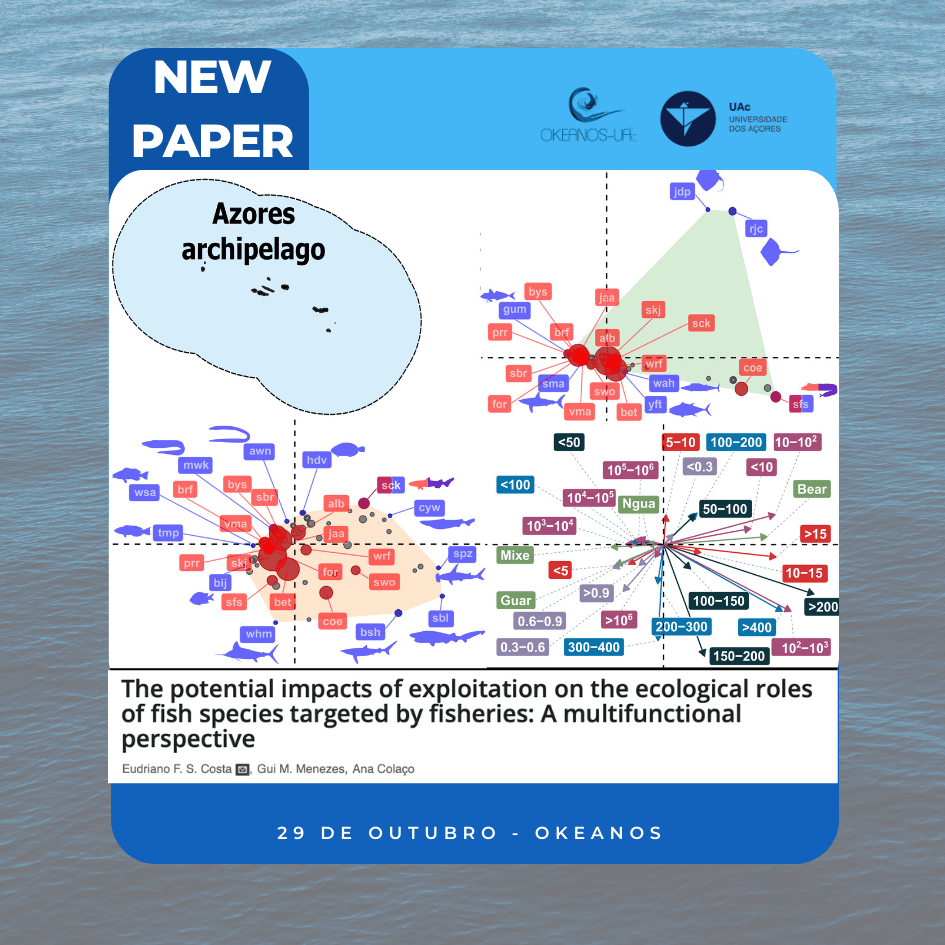The potential impacts of exploitation on the ecological roles of fish species targeted by fisheries
Hoje, destacamos um novo artigo.
Este estudo explora como a atividade pesqueira pode impactar os papéis ecológicos desempenhados pelas espécies capturadas através da análise da diversidade de características funcionais dos peixes. A investigação, focada no arquipélago dos Açores, destaca a importância de entender a diversidade de características funcionais para avaliar o potencial impacto das atividades pesqueiras na sustentabilidade ecológica e nas funções do ecossistema. A pesquisa sugere que a pesca altera significativamente a composição funcional das espécies, o que pode levar a mudanças na estrutura dos ecossistemas e afetar a capacidade de resposta a pressões antropogênicas e mudanças climáticas. A diversidade de características ou traços funcionais, que inclui aspetos como modos de alimentação, locomoção e história de vida, foi usada para medir a variação e resiliência funcional ao longo de décadas. Essa abordagem funcional permite entender como a pesca pode impactar a estrutura e as dinâmicas de ecossistemas, ressaltando a importância de práticas de manejo sustentáveis e informadas para preservar a integridade dos ecossistemas marinhos. Este estudo é, portanto, um exemplo da relevância do conhecimento científico na formulação de políticas ambientais e na gestão sustentável dos recursos naturais.
___________________________
This study explores how fishing activity can impact the ecological roles played by fish targeted by the Azorean fishing fleet by analyzing the diversity of functional traits in species recorded in the landings. The research highlights the importance of understanding the diversity of functional traits to assess the potential impact of fishing activities on ecological sustainability and ecosystem functions. This research suggests that fishing significantly changes the functional composition of species, which can lead to changes in the structure of ecosystems and affect the ability to respond to anthropogenic pressures and climate change. The diversity of functional traits, which includes aspects such as feeding modes, locomotion and life history, was used to measure functional variation and resilience over decades. This functional approach allows us to understand how fishing can impact the structure and dynamics of ecosystems, highlighting the importance of sustainable and informed management practices to preserve the integrity of marine ecosystems. This study is, therefore, an example of the relevance of scientific knowledge in the formulation of environmental policies and the sustainable management of natural resources.


 VALTER MEDEIROS, with my special thanks to @all.
VALTER MEDEIROS, with my special thanks to @all.